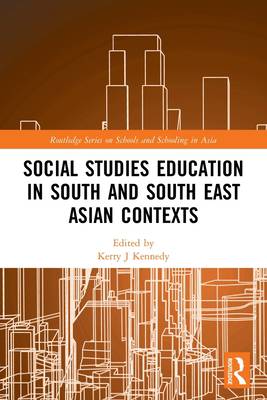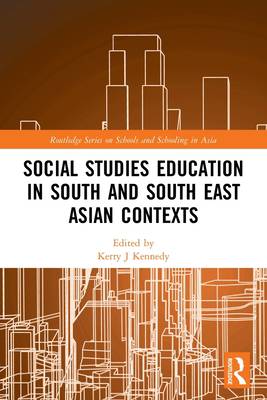
- Afhalen na 1 uur in een winkel met voorraad
- In januari gratis thuislevering in België
- Ruim aanbod met 7 miljoen producten
- Afhalen na 1 uur in een winkel met voorraad
- In januari gratis thuislevering in België
- Ruim aanbod met 7 miljoen producten
Social Studies Education in South and South East Asian Contexts
Omschrijving
The education of young people is context bound. This edited volume explores the contexts that characterise South and South East Asia and their influence on social studies education. There is not a single context across this broad geographical expanse, rather different religions, different political systems and different values exert influences that create distinctive programmes that characterise different countries. Yet there are also commonalities such as the post-colonial nature of most of the countries portrayed in this book, determined efforts at establishing new national communities and multiple value systems that lead to distinctive local priorities. There are also voices of resistance in these chapters, recognising the realities of local contexts but also recognising the need for change. Social studies education in these contexts may well be descended from its origins in North America, but in South and South Asian contexts, it has taken on new purposes, new forms and new values.
Education researchers, policymakers and postgraduate students in comparative education will find the volume useful in its exploration and comparison of the social studies curricular and reforms that shaped them.
Specificaties
Betrokkenen
- Uitgeverij:
Inhoud
- Aantal bladzijden:
- 242
- Taal:
- Engels
- Reeks:
Eigenschappen
- Productcode (EAN):
- 9780367523701
- Verschijningsdatum:
- 9/01/2023
- Uitvoering:
- Paperback
- Formaat:
- Trade paperback (VS)
- Afmetingen:
- 156 mm x 234 mm
- Gewicht:
- 371 g

Alleen bij Standaard Boekhandel
Beoordelingen
We publiceren alleen reviews die voldoen aan de voorwaarden voor reviews. Bekijk onze voorwaarden voor reviews.








